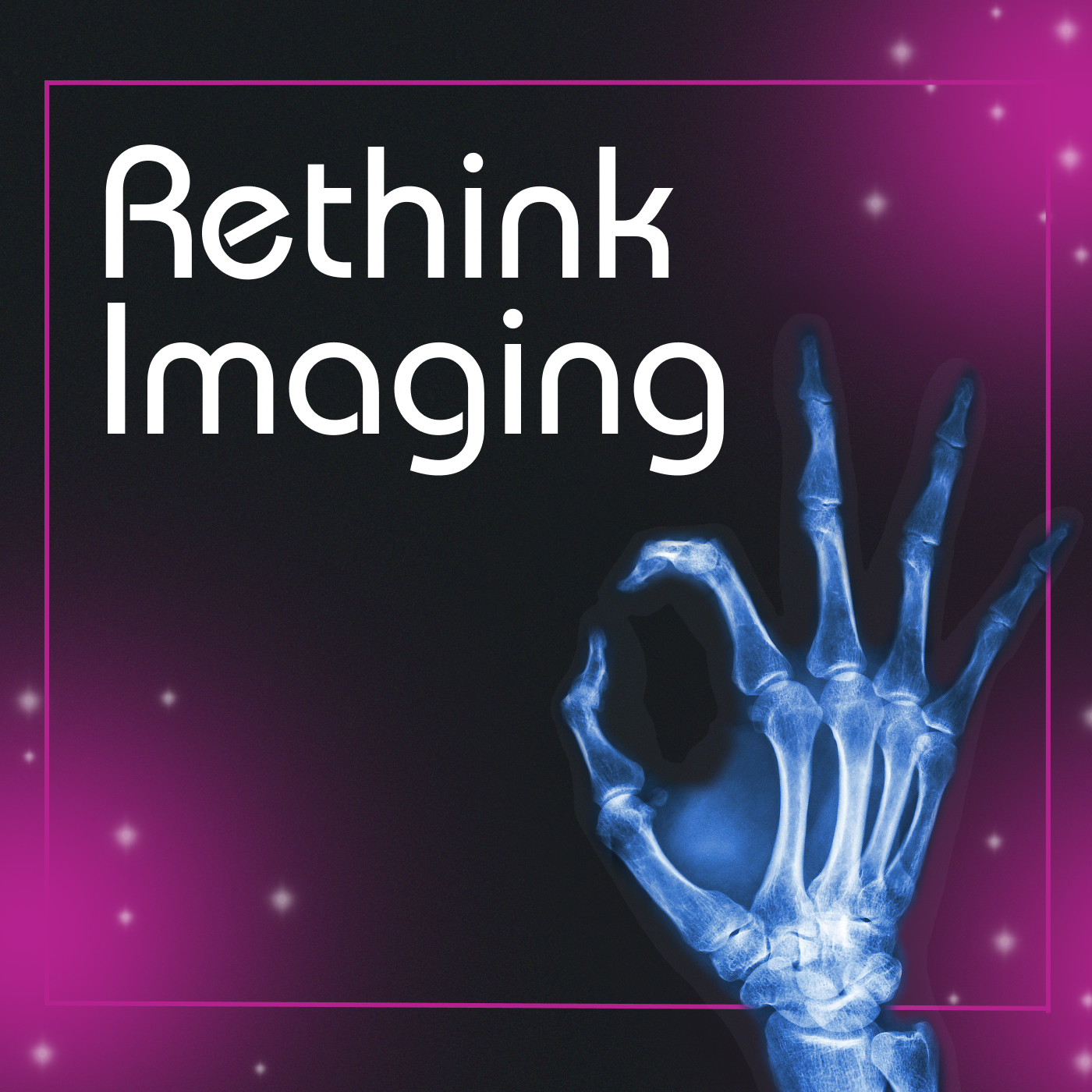Peer Learning: From Toxic Scoring to Transformative Education with Dr. David Larson
September 11, 2025

In this episode of Frame by Frame: Rethink Imaging, host Chris St John sits down with Dr. David Larson, Founding Director of the AI Development and Evaluation Lab at Stanford University School of Medicine, to explore the shift from traditional peer review to peer learning in radiology.
By replacing numerical scoring with collaborative learning, Dr. Larson highlights how radiologists can improve performance, foster psychological safety, and deliver better patient care. Whether in a major academic center or a community hospital, this episode provides actionable insights for building a growth-focused culture in radiology.
In this episode of Frame by Frame: Rethink Imaging, host Chris St John welcomes Dr. David Larson, Founding Director of the AI Development and Evaluation Lab at Stanford University School of Medicine, to discuss how peer learning is redefining quality assurance in radiology. With over a decade at Stanford and prior leadership roles at Cincinnati Children’s Hospital and Utah Radiology Associates, Dr. Larson has established himself as a pioneer in radiology quality improvement and patient safety. He is best known for developing peer learning as a transformative alternative to traditional peer review, focusing on feedback, learning, and improvement rather than punitive scoring.
The conversation explores why score-based systems often foster adversarial relationships, while peer learning encourages participation, and drives genuine improvement in radiologist performance. Drawing from his extensive experience in dose optimization, technology integration, and medical education, Dr. Larson shares the “three pillars” of effective peer learning and demonstrates how programs can be adapted across different hospital environments—from small rural practices to large academic centers.
They also examine how AI can complement peer learning without undermining the human relationships that drive quality improvement, as well as strategies for building a business case that prioritizes culture and patient safety. With insights spanning program design, interdisciplinary communication, and subspecialty coverage, Dr. Larson makes a compelling case for why local, relationship-based peer learning programs are more effective than national frameworks.
For radiology leaders and practitioners alike, this episode offers both a roadmap and an inspiration for transforming departmental culture through collaborative learning, ensuring that technology and teamwork go hand in hand to improve patient care.
What You'll Learn:
- How to transition from score-based peer review to a collaborative peer learning model
- Why traditional scoring systems create adversarial relationships and hinder genuine improvement
- The three pillars framework for effective peer learning: feedback, learning, and improvement
- How to implement peer learning programs in different hospital settings, from small practices to academic centers
- Why psychological safety and participation metrics matter more than numerical scoring
- How to integrate AI tools with peer learning while maintaining human relationships
- The critical role of interdisciplinary communication in enhancing radiological care quality
- How to build a business case for peer learning that emphasizes cultural improvement and patient safety
- Why local, relationship-based peer learning programs are more effective than national frameworks
- How to adapt peer learning designs for different practice sizes and subspecialty coverage needs
Chapters:
[00:00] Intro: The Evolution from Peer Review to Peer Learning
[02:43] Breaking Free from Score-Based Peer Review Systems
[07:50] The Three Pillars: Feedback, Learning & Improvement
[13:43] Overcoming Implementation Challenges in Peer Learning
[17:40] Adapting Peer Learning for Different Practice Settings
[20:15] Structuring Effective Peer Learning Meetings
[25:46] Measuring Success Through Cultural Change
[29:57] Making the Business Case for Peer Learning
[33:02] Building Interdisciplinary Trust Through Shared Learning
[35:37] The Future of Peer Learning: AI Integration & Local Focus
Frame by Frame: Rethink Imaging Podcast is handcrafted by our friends over at: fame.so